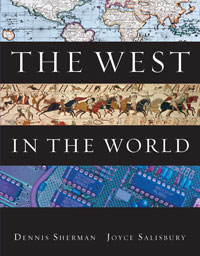
The West in the World, 4th Edition (Sherman)Chapter 19: Nationalism and StatebuildingChapter SummariesDuring the period from 1850 to 1870, the ideology of nationalism served as a driving political force. In this era, nationalism translated into practical policies which led to war, civil war, and violence in the name of national unity and greatness. Unified German and Italian nation states were created as a consequence of the political strength of nationalism. But a destructive side appeared as multi-ethnic empires were torn apart by nationalist sentiments. The United States experienced civil war as North and South fought over slavery. Motivated by nationalist concerns, rulers attempted to enact reforms to strengthen national states and central governments by garnering the support of citizens. By 1870, it was clear that the political power of nationalism was varied; it could create national, unified states, shatter multinational empires, create a stronger sense of unity in already existing nations, and bolster the authority of central governments. |  |















